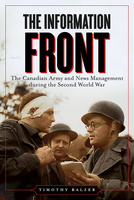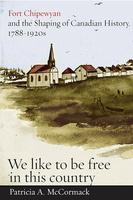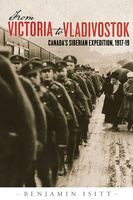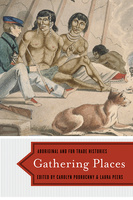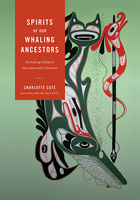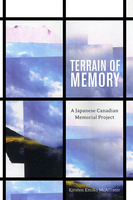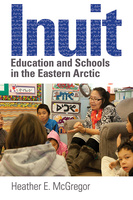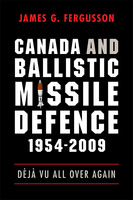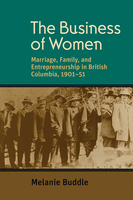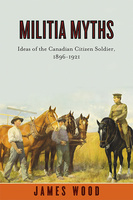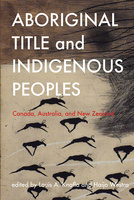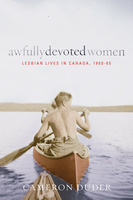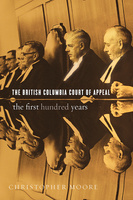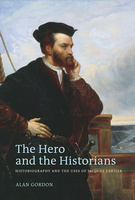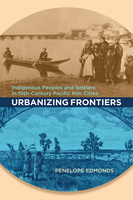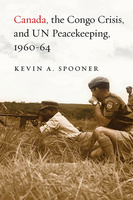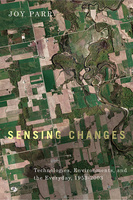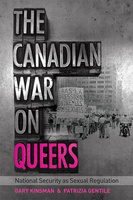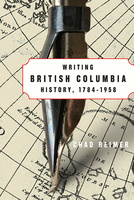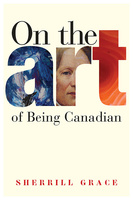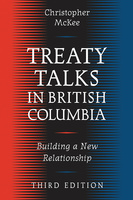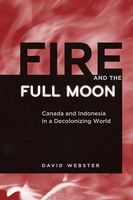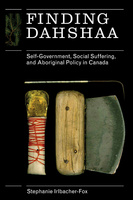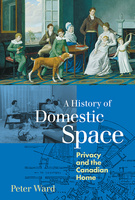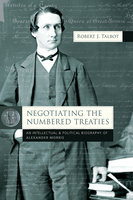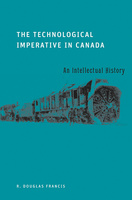The Information Front
The Canadian Army and News Management during the Second World War
The first book on the public relations efforts of the Canadian Army during the Second World War.
Fort Chipewyan and the Shaping of Canadian History, 1788-1920s
"We like to be free in this country"
This meticulously researched study of the most famous of the Treaty No. 8 communities offers a unique perspective on nation building that challenges the nature of history writing in Canada itself.
Placing Memory and Remembering Place in Canada
A fascinating book that situates local places and local expressions of public memory such as statues, photographs, and oral stories at the centre of identity formation in twentieth-century Canada and beyond.
From Victoria to Vladivostok
Canada’s Siberian Expedition, 1917-19
Uncovers the forgotten story of the Canadian Siberian Expeditionary Force – sent to Russia in 1918 as part of an Allied intervention to defeat Bolshevism – despite the objections of many Canadians who were sympathetic to the goals of the Russian Revolution.
In Defence of Principles
NGOs and Human Rights in Canada
This exploration of the activities of four Canadian NGOs in advancing and defending human rights principles sheds new light on the fragility and resilience of human rights norms in liberal democracies.
Gathering Places
Aboriginal and Fur Trade Histories
Scholars from multiple disciplines draw on unique and innovative sources – archaeological and material evidence, personal experience and oral history – to recover Aboriginal and cross-cultural histories and explore new approaches to the past.
Spirits of Our Whaling Ancestors
Revitalizing Makah and Nuu-chah-nulth Traditions
Following the revival of the gray whale hunt by the Makah and Nuu-chah-nulth tribes in the Pacific Northwest, this books looks at the significance of whaling to these societies, exploring environmentalism, animal rights, and what it means to be “Indian.”
Terrain of Memory
A Japanese Canadian Memorial Project
This book explores how Japanese Canadians living in an isolated mountainous valley in the province of British Columbia worked together to transform the village where they lived for over fifty years from a site of political violence into a space for remembrance.
Inuit Education and Schools in the Eastern Arctic
The first history of educational policy, practice, and decision making in the Eastern Arctic, now Nunavut.
No need of a chief for this band
The Maritime Mi'kmaq and Federal Electoral Legislation, 1899-1951
A nuanced account of Ottawa’s failed attempt to replace Mi’kmaw political culture with Euro-Canadian political values and structures.
The Practice of Execution in Canada
The first comprehensive examination of execution as a social institution in Canada.
Canada and Ballistic Missile Defence, 1954-2009
Déjà Vu All Over Again
This insightful book offers an explanation for Canada’s uncertain response to US ballistic missile defence initiatives from the 1950s to the present.
The Business of Women
Marriage, Family, and Entrepreneurship in British Columbia, 1901-51
A groundbreaking study of women entrepreneurs in early twentieth-century British Columbia.
Militia Myths
Ideas of the Canadian Citizen Soldier, 1896-1921
Militia Myths traces the cultural history of the citizen soldier from 1896 to 1921, an ideal that lay at the foundation of how Canadians experienced and remember the First World War.
Aboriginal Title and Indigenous Peoples
Canada, Australia, and New Zealand
Offers a perspective on Aboriginal title and land rights that extends beyond national borders and the contemporary context to consider historical developments in common law countries.
Awfully Devoted Women
Lesbian Lives in Canada, 1900-65
This intimate study of the lives of middle-class lesbians who came of age before the gay rights movement unveils a previously unknown world of private relationships, discreet social networks, and love.
Veterans with a Vision
Canada’s War Blinded in Peace and War
Illuminates the challenges faced by Canada’s war-blinded veterans and outlines the history of the Sir Arthur Pearson Association of War Blinded, an advocacy group for all Canadian veterans and blind citizens.
The British Columbia Court of Appeal
The First Hundred Years
An authoritative history of British Columbia’s highest court.
One of the Family
Metis Culture in Nineteenth-Century Northwestern Saskatchewan
Employs a sophisticated theoretical framework and diverse sources to trace the birth and growth of a Metis community in northern Saskatchewan.
The Hero and the Historians
Historiography and the Uses of Jacques Cartier
This unique exploration of commemoration and memory traces Jacque Cartier’s evolving image over five centuries to show how changing notions of the past have shaped identity formation and nationalism in English- and French-speaking Canada.
Urbanizing Frontiers
Indigenous Peoples and Settlers in 19th-Century Pacific Rim Cities
This book explores the lives of Indigenous peoples and settlers and compares the emergence of racial boundaries in two Pacific Rim cities – Victoria, British Columbia, and Melbourne, Australia.
Pearson's Peacekeepers
Canada and the United Nations Emergency Force, 1956-67
Pearson’s Peacekeepers describes Canada’s role in the first peacekeeping effort mounted by the UN and uncovers realities, and challenges, that lie beneath the myth of Canada’s peacekeeping mission.
Canada, the Congo Crisis, and UN Peacekeeping, 1960-64
Canada, the Congo Crisis, and UN Peacekeeping, 1960-64 reveals the complex web of influences that shaped Canada’s relationship with Africa and its involvement in UN peacekeeping.
The Politics of Procurement
Military Acquisition in Canada and the Sea King Helicopter
A history of failed attempts to replace the Sea King maritime helicopter reveals the political nature and shortcomings of the Canadian defence procurement process.
Sensing Changes
Technologies, Environments, and the Everyday, 1953-2003
These narratives about state-driven megaprojects and technological and regulatory changes reveal how humans make sense of their world in the face of rapid environmental change.
The Canadian War on Queers
National Security as Sexual Regulation
The Canadian War on Queers shows how the Canadian state used the ideology of national security to wage war on gays and lesbians.
Writing British Columbia History, 1784-1958
This sweeping exploration of history writing in British Columbia shows how historians helped to construct Canada's settler society.
On the Art of Being Canadian
Drawing on a wealth of artistic expression, this book explores how the arts and artists have shaped Canadian national identity.
Unions, Equity, and the Path to Renewal
This feminist analysis of union renewal strategies suggests that equity is the way to reposition organized labour as a central institution in workers’ lives.
Treaty Talks in British Columbia, Third Edition
Building a New Relationship
This third edition of a classic brings readers up to date on treaty negotiations in British Columbia and is a valuable resource for those interested in the treaty process both in BC and Canada.
Fire and the Full Moon
Canada and Indonesia in a Decolonizing World
Fire and the Full Moon reassesses Canada’s postwar foreign policy objectives and national image through the gulf between rhetoric and reality in Canada’s response to decolonization in Indonesia and the Global South.
In Mixed Company
Taverns and Public Life in Upper Canada
A fascinating exploration of the tavern as a significant and fluid social space in colonial Canada.
Home Is the Hunter
The James Bay Cree and Their Land
The James Bay Cree lived in relative isolation until 1970, when Northern Quebec was swept up in the political and cultural changes of the Quiet Revolution. Home Is the Hunter presents the historical, environmental, and cultural context from which this recent story grows.
From Rights to Needs
A History of Family Allowances in Canada, 1929-92
This comprehensive exploration of the origins and development of family allowances offers inventive insights into Canada’s welfare state and social policy over the past half century.
Finding Dahshaa
Self-Government, Social Suffering, and Aboriginal Policy in Canada
Based on case studies of three self-government negotiations in the Northwest Territories, Finding Dahshaa is the first ethnographic study of the negotiation of self-government in Canada.
Becoming British Columbia
A Population History
Becoming British Columbia investigates critical moments in the demographic record of British Columbia, including catastrophic epidemics, immigrant rushes, forced migrations, the fertility transition, and the baby boom, in an accessible yet scholarly and provocative way.
A History of Domestic Space
Privacy and the Canadian Home
Peter Ward looks at how spaces in the Canadian home have changed over the last three centuries, and how family and social relationships have shaped – and been shaped by – these changing spaces.
Negotiating the Numbered Treaties
An Intellectual and Political History of Alexander Morris
The story of the prairie treaties and Alexander Morris, a man who embraced a larger concept of nationhood and the role of First Nations in the expansion of Canada.
The Technological Imperative in Canada
An Intellectual History
This highly original, seminal study of Canadian theorists of technology and morality shows that Canadian thinkers were not only original and intellectually au courant but also engaging and insightful.
Becoming Native in a Foreign Land
Sport, Visual Culture, and Identity in Montreal, 1840-85
This richly illustrated book shows how English-speaking colonists in Montreal appropriated French Canadian and indigenous sports traditions to forge a new, “Canadian” identity, which marginalized French Canadians and Aboriginal peoples in their own land.

